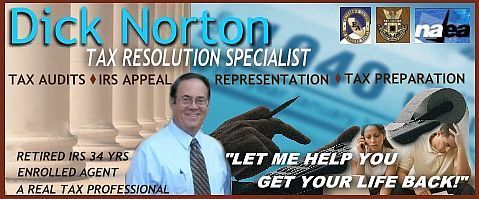Federal and State Tax Liens
If you owe money to the government (Federal and state) because of certain delinquent debts, the IRS and State tax agencies can file LIENS that will encumber your real and personal property. Taxpayers are often surprised that they are unable to sell a house when the title company finds a tax lien recorded. The lien must be released, subordinated or discharged before the sale can go through. Below is a link to the IRS website with videos that discuss the process to resolve a lien on real property to facilitate a sale. http://www.irsvideos.gov/Individual/IRSLiens The following information on the Federal tax lien is from the IRS website, and is reprinted for your convenience. *********************************** Notice of Federal Tax Lien Liens give us a legal claim to your property as security or payment for your tax debt. A Notice of Federal Tax Lien may be filed only after: We send you a Notice and Demand for Payment – a bill that tells you how much you owe in taxes; and You neglect or refuse to fully pay the debt within 10 days after we notify you about it. Once these requirements are met, a lien is created for the amount of your tax debt. By filing notice of this lien, your creditors are publicly notified that we have a claim against all your property, including property you acquire after the lien is filed. This notice is used by courts to establish priority in certain situations, such as bankruptcy proceedings or sales of real estate. Once a lien is filed, your credit rating may be harmed. You may not be able to get a loan to buy a house or a car, get a new credit card, or sign a lease. Therefore it is important that you work to resolve your tax liability as quickly as possible, before lien filing becomes necessary.
In addition, you must pay all fees that a state or other jurisdiction charges to file and release the lien. These fees will be added to the amount you owe. Refer to Publication 1450, Request for Release of Federal Tax Lien (PDF). The full amount of your lien will remain a matter of public record until it is paid in full, including all accruals and additions. However, at any time you may request an updated lien payoff amount to show the remaining balance due by calling the toll-free customer service telephone number at 1-800-913-6050. An IRS employee will issue you a letter with the current amount that must be paid before we release the Notice of Federal Tax Lien. If you are giving up ownership of property, such as when you sell your home, you may apply for a Certificate of Discharge. Each application for a discharge of a tax lien releases the effects of the lien against one piece of property. Note that when certain conditions exist, a third party may also request a Certificate of Discharge. If you’re selling your primary residence, you may apply for a taxpayer relocation expense allowance. Certain conditions and limitations apply. Refer to Publication 783, Instructions on How to Apply for a Certificate of Discharge of Property from the Federal Tax Lien (PDF). In some cases, a federal tax lien can be made secondary (subordinate) to another lien. That process is called subordination. Refer to Publication 784, How to Prepare Application for Certificate of Subordination of Federal Tax Lien. (PDF) By law, a filed notice of tax lien can be withdrawn if:
We will give you a copy of the withdrawal, and if you write to us, we will send a copy to other institutions you name. If you have questions regarding basic lien inquiries such as routine lien releases and lien payoff amounts, contact the Centralized Lien Unit by calling the toll free telephone number (1-800-913-6050). The law requires us to notify you in writing not more than 5 business days after the filing of a lien. We may give you this notice in person, leave it at your home or your usual place of business, or send it by certified or registered mail to your last known address. You may ask an IRS manager to review your case, and you may request a Collection Due Process hearing with the Office of Appeals by filing a request for a hearing with the office listed on your notice. You must file your request by the date shown on your notice. Some of the issues you may discuss include:
|
